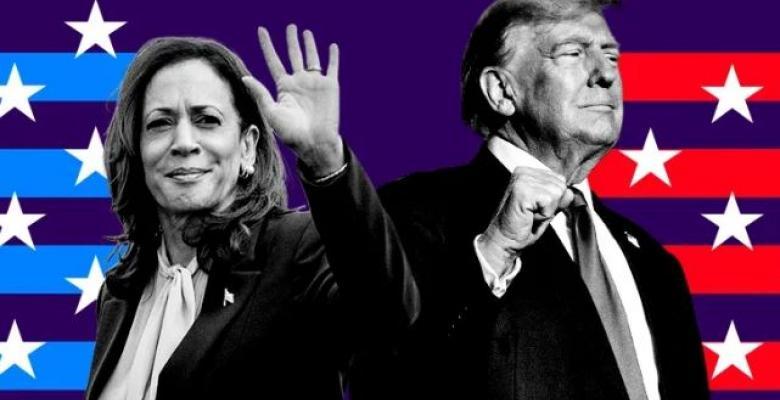Trump-Harris (I): Proposals and Obstacles
especiales

Less than two months before the North American presidential elections, the fight for power remains very close, after various polls agreed that Vice President Kamala Harris, of the Democratic Party, saw her advantage over the Former Republican President Donald Trump.
He has seen his lead of more than seven points disappear over the previous Democratic candidate, President Joe Biden, who was forced to abdicate due to serious problems caused by his advanced age and after a debate with Trump, in which he looked completely lost.
Something similar happened to the Republican in his only debate with Harris, but that does not mean a fight has been won, because Americans vote thinking about their pocketbooks, and more so in an economy that’s being hit by inflation.
Bearing high inflation for years can take its toll and now Americans pay 20% more for goods and services than before the pandemic.
On the other hand, the labor market, which had been the greatest source of strength for the American economy after the pandemic, has been giving warning signs lately. The unemployment rate is hovering at three-year highs, and employers are cutting back on hiring, with the number of job openings across the economy recently falling to the lowest level since January 2021.
Harris and Trump have put very different policy proposals on the table, but neither offers a credible solution to the country's fiscal problem, said Joshua Gotbaum, a visiting professor of economics at the Brookings Institution.
Their contrasting approaches could have far-reaching effects on the economy and for ordinary citizens.
WHAT COULD HAPPEN
Trump's controversial tariff policy would levy dramatically higher import taxes on almost everything that comes into the country's ports from abroad.
That could boost government revenue, but it could also cause Americans to pay higher prices for goods and services. And Trump is talking about tariffs of 10% to 20% on most products, except Chinese ones, which would have 60%.
He promises to pump far more oil to bring down prices, but it's an open question whether he could pull it off. The United States already pumps more oil than any other nation in history.
In addition, the unprecedented immigration crackdown that Trump has promised if he returns to the White House could also lead to higher inflation. If mass deportations occur, businesses could struggle to fill open jobs, forcing them to raise wages and pass those costs on to consumers.
Harris has not promised mass deportations or a crackdown similar to what Trump has called for, just a "modest further reduction" in immigration.
But Harris's policies are not inflation-proof. The first-time home tax credit and tripling of the newborn tax credit she has proposed could leave consumers with more money to spend on goods and services. But that could raise the prices they pay for them as a result.
Harris has also proposed a plan that her team says would lead to three million homes. The problem is timing: If the first-time homebuyer credit goes into effect before more new units become available, it could trigger a spike in home prices.
"The problem right now is that there are too many people looking for too few houses," Justin Wolfers, a professor of public policy and economics at the University of Michigan, told CNN. "The solution is not to give more money to people to buy houses. If you don't fix the supply side, then everyone you helped is hurting someone else."
THE DEFICIT
Regardless of who wins in November, the federal budget deficit can be expected to grow significantly.
A budget deficit occurs when the government spends more than it collects. Currently, the US government runs a budget deficit of $1.5 trillion.
The size of the deficit has big implications for Americans. The larger the deficit, the riskier it is to hold US debt, which tends to grow when the deficit does. As a result, the government might have to pay higher interest rates to borrow money. That can reduce the amount of investment in other programs the government can make.
Higher interest rates on government debt, which is typically sold in Treasury bonds and notes, could also cause borrowing costs to rise for Americans, since the interest rates are tied to those paid to invest in government debt.
Several of the tax policies Trump is proposing would substantially limit the amount of money the government collects. These policies include permanently extending the individual and corporate provisions of his Tax Cuts and Jobs Act, which is set to expire next year. That would, among other things, maintain the top tax rate that individuals pay.
Harris has also proposed lowering the corporate tax rate to 15% from the current 21% for companies that manufacture products in the country and ending taxes on Social Security benefits for seniors as well as tips for service sector workers.
Meanwhile, the tax proposals Harris has put forward so far mostly involve higher taxes, which would have a positive impact on the deficit. For example, she favors raising the top personal income tax rate to 44.6% and the top long-term capital gains tax rate to 28%, up from the current 20%. As for corporations, she favors raising the tax rate to 28%.
But the additional tax revenue the government could raise from this could be offset by the large tax credits it has proposed, including expanding the child tax credit and offering a $25,000 credit to first-time homebuyers.
Like Trump, she has promised to end tip taxes, and not raise them on families making less than $400,000 a year. Both would increase the deficit.
Translated by Amilkal Labañino / CubaSí Translation Staff













Add new comment